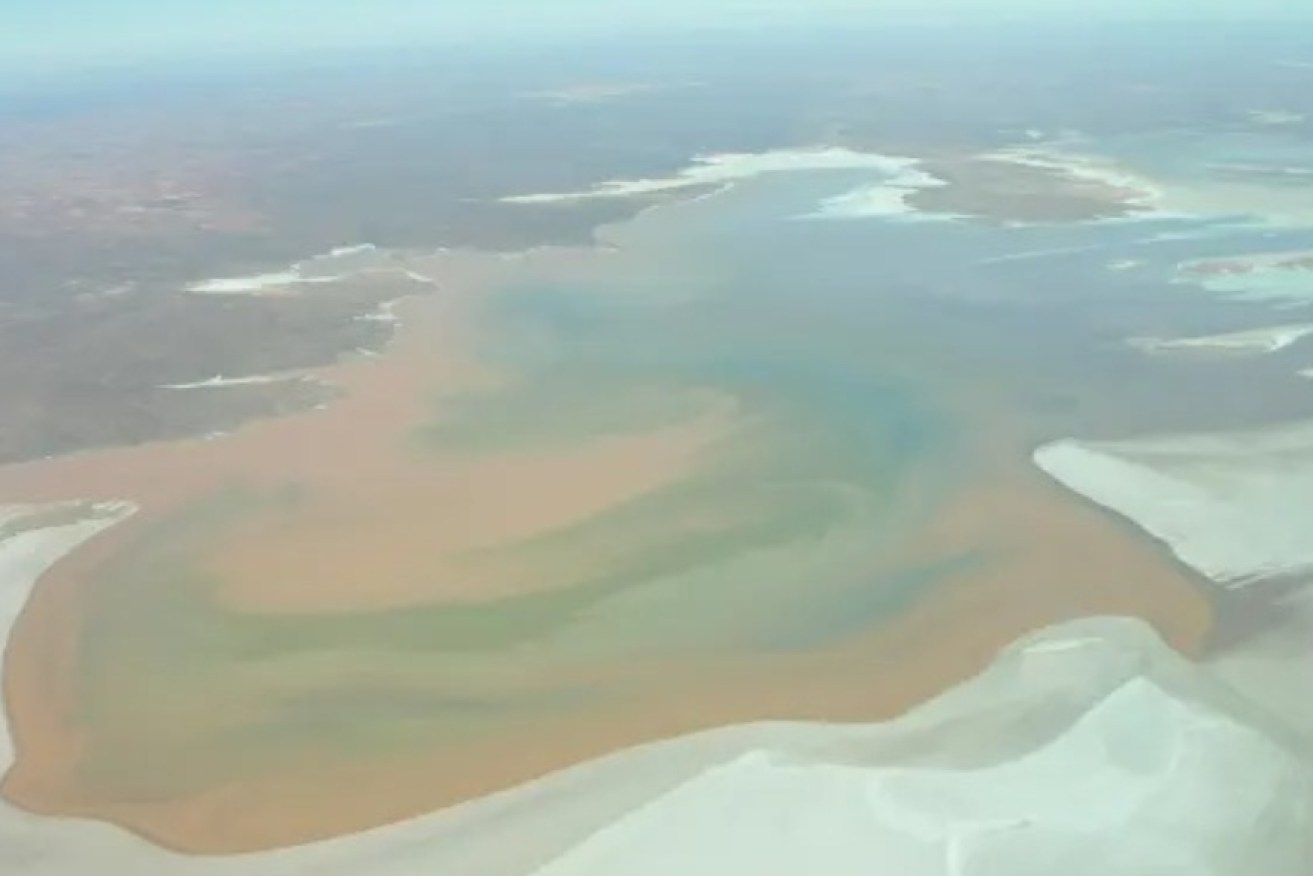Chief Justice overturns drilling approval at Aboriginal heritage site
South Australia’s Chief Justice has overturned former Premier Steven Marshall’s controversial decision to allow a mineral exploration company to drill at a sacred Aboriginal heritage site in the state’s outback.

Lake Torrens in SA's outback. Photo: Facebook/SANTS
Chief justice Chris Kourakis’ Supreme Court ruling, handed down yesterday, means mineral exploration company Kelaray – a subsidiary of Argonaut Resources – will have to abandon plans to drill more than 1000 holes at Lake Torrens in northern South Australia in search of iron-oxide-copper-gold.
The company claims the decision has “the potential to disrupt several major South Australian construction projects with similar authorisations including the new Women’s and Children’s Hospital project”.
Marshall signed off on Kelaray’s application in December 2020, at the time over-ruling a recommendation from his department, which advised that drilling at Lake Torrens could cause “potential risk to archaeological heritage” and “hurt, sorrow and sickness” to Traditional Owners.
He said his approval was a continuation of an approval first granted by the Weatherill Governrment.
Lake Torrens is Australia’s second largest salt lake and plays a significant role in Adnyamathanha, Pitjantjatjara, Yankunytjatjara, Arabana, Barngarla, Kokatha and Kuyani beliefs and songlines.
It is listed as an Aboriginal heritage place and the government believes ancestral remains are likely to be buried around the lake’s perimeter and islands.
Marshall, acting in his role as then Aboriginal Affairs Minister, gave Kelaray permission to damage or interfere with any Aboriginal site, object or remains within the exploration area provided the company complied with “strict” conditions.
A Marshall Government spokesperson told InDaily last year that the Premier approved the drilling “after extensive consultation with Aboriginal people and organisations”.
They said Marshall “took into account that there is a history of mineral exploration activity on Lake Torrens and close to its shoreline”, with the first exploration hole drilled at the site in 1960.
But Barngarla Determination Aboriginal Corporation launched judicial review proceedings in the Supreme Court in an attempt to halt the drilling, arguing the conditions imposed by Marshall were not valid and “failed to take relevant considerations into account”.
In his judgement, Kourakis wrote that his decision to set aside Marshall’s authorisation was based on concerns that Kelaray’s heritage plan and “chance find procedure” would “subvert” the state’s Aboriginal heritage laws.
He stated the plan would have allowed Kelaray to damage or interfere with Aboriginal objects in accordance with advice from anthropologists or Aboriginal representatives of the company’s choosing, before having to notify the Aboriginal Affairs Minister.
Kourakis wrote the plan would “substantially detract” from the state’s Aboriginal heritage laws, which state the Minister must be informed of the discovery of an Aboriginal site or object before it is interfered with.
He wrote “irreparable loss of Aboriginal heritage” could result if government agencies and Ministers are not informed of discoveries in a timely manner.
“True it is that Kelaray would still be liable to prosecution for failing to comply with … the Aboriginal Heritage Act despite the grant of the authority,” he wrote.
“However, allowing Kelaray to remove, and interfere with, an item of Aboriginal heritage without first complying with… (the Aboriginal Heritage Act) substantially diminishes the power of oversight and review by the Minister and puts items of Aboriginal heritage at risk.”
Barngarla Determination Aboriginal Corporation chairperson Jason Bilney told InDaily the outcome was a “very proud moment” for Traditional Owners.
But he said he was concerned that Kelaray had already caused damage at Lake Torrens by starting to drill before the court proceedings were launched.
“We’re quite pleased with the result, but it’s taken a fair while to get down this path,” he said.
“We’re just fighting for our right to protect and preserve.“It’s sad in a way because they (Kelaray) have already done damage to the site by drilling there, but I wouldn’t be able to comment on how much damage because I haven’t been up there for a while.
“Lake Torrens is all part of the lakes dreaming. It’s a significant place and a significant story for us.”
In an ASX announcement, Argonaut Resources said the judicial review “succeeded only on a very limited basis”.
It said the judgement has the potential to disrupt “several major South Australian construction projects with similar authorisations including the new Women’s and Children’s Hospital project”.
“Initial interpretation of the judgement suggests that new development authorisations granted by the South Australian Government can accommodate the issue identified by the Court,” it said.
“The company will contact the Government as a matter of urgency to ascertain its position with regards to the reissue of the Murdie (Lake Torrens) authorisation.
“Counsel for Kelaray is considering the judgement and will advise the company on the merits of an appeal.”
Argonaut CEO Lindsay Owler was contacted for comment but he referred InDaily to the ASX announcement.
Marshall told InDaily that Kelaray first secured permission to do exploratory drilling at Lake Torrens in 2017 under the former Weatherill Government.
“Really, our (approval) was a continuation,” he said.
“It’s really over to the government to determine what they will do.”
Barngarla Determination Aboriginal Corporation is also fighting the federal government’s decision to construct a nuclear waste dump near Kimba in the Federal Court.




